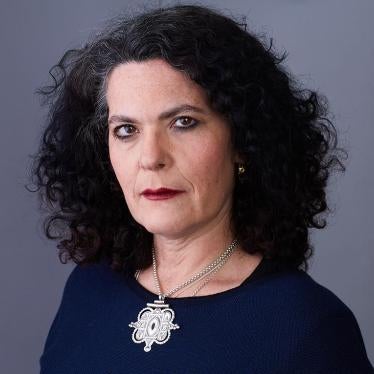In January 2012, my investigations determined that some 400 women and girls were locked away in Afghan prisons and juvenile detention facilities for the 'moral crime' of running away from home or having sex outside of marriage. My organisation, Human Rights Watch, reported those findings. Some 18 months later, things have really changed. For the worse.
Today at least 600 women and girls are imprisoned in Afghanistan for 'moral crimes' a 50 per cent increase over the last 18 months. Most of the women and girls we had reported on in 2012 were actually crime victims, who fled forced and underage marriage, or extreme domestic violence. Some had even been convicted of sex outside of marriage – after being raped.
The appalling rise in the number of women and girls imprisoned for 'moral crimes' has occurred despite some positive steps by the Afghan government to address the problem. High-level officials have clarified that 'running away' is not a crime under Afghan law and the government has established specialised units to prosecute violence against women, as well as four new shelters for women fleeing violence. But for the metric that matters most – the number of women and girls behind bars – the news is all bad.
The spike in the number of women and girls imprisoned for 'moral crimes' occurs as the international community is running out the door in Afghanistan as part of a planned drawdown of foreign military forces by the end of 2014. There are already ominous signs that women's rights in Afghanistan face a darker future.
On May 18, an effort to have Afghanistan's 2009 Law on the Elimination of Violence Against Women – or EVAW law – endorsed by the Afghan parliament ended in disarray. So vociferous were the law's opponents, including religious leaders who are members of parliament, that the speaker halted debate after 15 minutes and sent the law back to parliamentary commissions for further consideration. Those against the law characterised it as a violation of Afghan religious and cultural values, ignoring Afghanistan's history of child marriage, forced marriage, domestic violence and the prosecution of rape victims.
"We're not worrying now about what will happen after the international community leaves in 2014, or about whether we will lose our rights as part of an agreement with the Taliban," an Afghan women's rights activist told me last week. "If we lose the EVAW law, none of that will matter because we will already have lost everything."
In Kabul, it is clear that the international community's primary focus these days is packing to leave. When I meet embassy staff, they talk about which programmes they are closing, and how they will manage the remaining programs with far fewer staff. While there is detailed planning by Afghanistan's foreign donors to support the Afghan security forces for 10 years past 2014, there is a glaring absence of consideration of similar safeguards for women's rights in the years ahead. Many women's rights activists feel that this is because foreign donors consider the plight of Afghan women to be a lost cause.
If women are indeed abandoned in a deteriorating climate for rights, it would be a betrayal of one of the key promises of the international community to the people of Afghanistan since 2001. Afghan women have fought for every inch of progress they have made in rights protection. Their fight will continue and donor countries owe them their full support.
A number of measures should urgently be taken. The Karzai government should abolish the practice of prosecuting women for 'moral crimes'. All laws that discriminate against women should be amended or revoked, and the EVAW law should be fully enforced throughout the country. The government should develop and implement a plan to increase the percentage of the police force that is female. And greater support is needed for shelters for women fleeing violence so that there is at least one shelter per province. These are just a few steps, but they are important ones.
Finally, Europe and the international community need to tell Hamid Karzai that they will not stand by Afghanistan's government at the price of the rights and dignity of its women and girls. Instead, support should be expressly tied to the government's genuine embrace of women's rights and lasting progress and protection for women throughout the country. The women and girls of Afghanistan deserve nothing less.
Heather Barr is the Afghanistan researcher for Human Rights Watch









